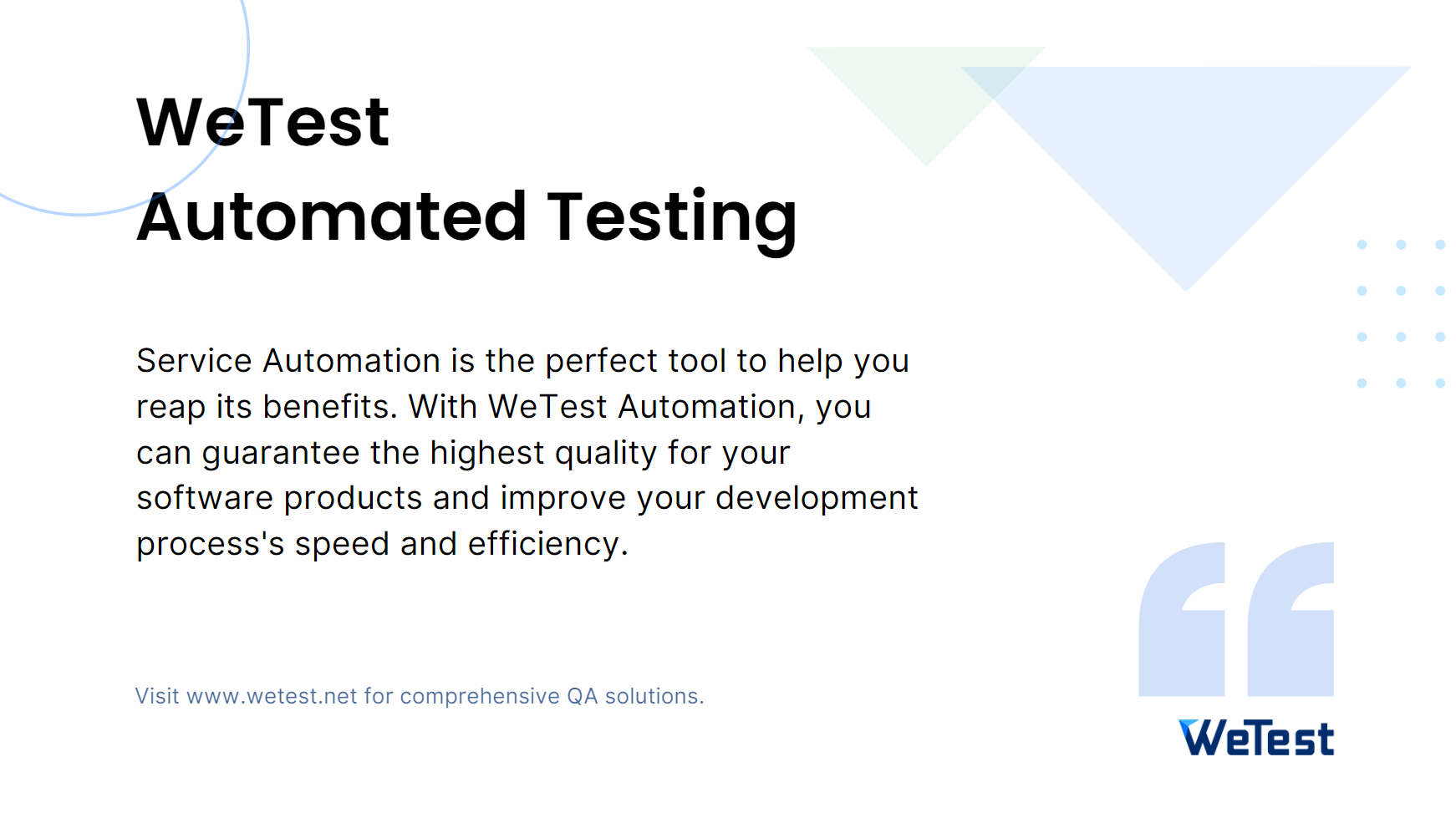Key Criteria for Automation Testing: When to Automate the Testing Process
Automation testing is a software testing technique that employs specialized tools to execute pre-scripted test cases automatically. It streamlines the testing process by reducing manual effort and enhancing the accuracy and reliability of test results. Through automation, repetitive and time-consuming test scenarios can be performed efficiently, freeing up testers to focus on more complex and exploratory testing tasks.
Key Criteria for Automation Testing
Identifying Repetitive Test Cases
One of the primary criteria for automation testing is identifying repetitive test cases that are executed frequently. These tests are ideal candidates for automation since they consume significant manual effort and time. Automating such test cases not only saves time but also ensures consistent and reliable test execution.
Evaluating Test Case Complexity
Not all test cases are equally suited for automation. Test cases that involve complex scenarios may require extensive scripting, making automation efforts less feasible. Analyzing test case complexity helps in determining which scenarios are better suited for manual testing and which can be automated effectively.
Considering Test Case Stability
Before automating test cases, it's essential to ensure they are stable and unlikely to undergo frequent changes. Automating unstable test cases could lead to constant script updates, resulting in maintenance overheads and reduced testing efficiency.
Assessing Test Data Variability
Automation testing relies on predefined test data. It is crucial to assess whether the application's test data is static or subject to frequent changes. Applications with varying test data may require additional effort in maintaining test scripts.
Integration of Automation Testing with Continuous Integration (CI)
Benefits of CI and Automation Testing Integration Integrating automation testing with a CI system enables automated test execution with every code commit, ensuring early bug detection and rapid feedback to developers. CI-driven automation ensures continuous improvement and quick resolution of issues.
Implementing CI with Popular Version Control Systems CI integration can be achieved with popular version control systems like Git and SVN. Automated test suites can be triggered upon code commits, automatically verifying the changes.
When Not to Automate: Scenarios to Avoid Automation
Initial or Unstable Builds Automation should not be applied to tests for initial or unstable builds. Frequent changes to the application can render automated tests ineffective and resource-intensive.
One-Time or Ad-Hoc Tests Tests that are performed only once or on an ad-hoc basis may not justify the investment in automation. Manual testing is more suitable in such cases.
UI Changes and Redundant Tests Automated tests relying heavily on the user interface may become redundant if UI changes are frequent. Carefully evaluate the impact of UI changes on test scripts.
Defining Key Performance Indicators (KPIs) Identifying and defining key performance indicators helps in quantifying the success of automation testing. Metrics like test execution time, defect detection rate, and test coverage are valuable KPIs.
Evaluating the Effectiveness of Automation Testing Regularly assess the effectiveness of automation testing through feedback from testers and stakeholders. Continuous improvement ensures that automation remains aligned with project objectives.
Future Trends in Automation Testing
AI and Machine Learning in Automation AI and machine learning are shaping the future of automation testing. Smart test generation, autonomous test execution, and self-healing test scripts are some areas where AI holds great potential.
Test Automation for IoT and Mobile Applications As the Internet of Things (IoT) and mobile applications proliferate, test automation for these platforms becomes critical. Specialized tools and frameworks cater to the unique challenges of testing IoT and mobile applications.
Conclusion
In conclusion, automation testing is a powerful technique that streamlines software development and ensures the delivery of high-quality products. By understanding the key criteria for automation testing, you can make informed decisions about when to automate and when not to. Combining the right automation testing tools, best practices, and integration with development processes enhances the effectiveness of automation. Embrace automation as a strategic asset to achieve faster development cycles, improved product quality, and increased customer satisfaction.
Introducing Automation by WeTest - The Best Test Automation Tool
WeTest provides the ultimate test automation tool that guarantees the highest quality for your software products. Our unique features make us stand out from the rest:
1. 1000+ Device Models: Test your native mobile app on real iOS and Android devices, including Apple, Samsung, Pixel, Xiaomi, and Huawei.
2. DevOps Integration: WeTest seamlessly integrates with popular CI/CD tools, allowing you to trigger automated tests with every build action.
3. Parallel Test Execution: Release your app 10x faster by executing tests in parallel across multiple devices on WeTest cloud.
4. Comprehensive Test Analysis: Get all your test results in one view, and debug your mobile app using logs, video recordings, screenshots, case analyses, device analysis, and performance analysis.
Get Started with WeTest Automation!


